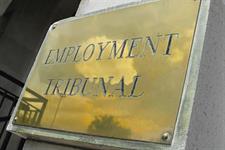The learning disability charity United Response unfairly dismissed a former care worker after it failed to make adjustments to take into account his recent autism diagnosis, an employment tribunal has ruled.
After a hearing that concluded in January, Leeds Employment Tribunal has ruled that United Response unfairly dismissed Dave Gregson after the charity did not properly take measures that could help him return to work.
But claims of direct disability discrimination and victimisation were dismissed by the tribunal and a complaint about sex discrimination was withdrawn.
Gregson began working as a carer with the charity on 4 July 2011, mainly based at the charity’s premises in Highgate Park in Harrogate, North Yorkshire.
The charity was aware that Gregson had obsessive compulsive disorder, anxiety and depression, but he was diagnosed with autism only in late 2017, and the charity became aware of this in 2018, the judgment says.
In late 2016, Gregson’s line manager raised concerns about his performance, specifically about his wellbeing and the risk of accidental harm to beneficiaries.
When further concerns were expressed by members of the team, Gregson disclosed that he had been going through a difficult personal period. As a result, and with his agreement, some of Gregson’s activities at work were restricted to reduce his workload.
But when the charity became concerned that Gregson was not complying with the restrictions, he was referred to occupational health, which recommended reducing Gregson’s responsibilities.
After an altercation with a support worker in February 2017, Gregson was moved to another site run by the charity nearby.
In the wake of a disciplinary hearing about the altercation, Gregson was told his move to the new site was permanent and was also given a first written warning. Gregson appealed and the relocation was reversed.
In June 2017, discussions about Gregson’s return to Harrogate began. An occupational health evaluation found him fit to return to work but without working sleep-in shifts.
Gregson’s working hours were kept at 9am to 5pm and restrictions were kept in place on the types of duties he could perform.
After a number of disputes about the restrictions, Gregson was suspended on 25 July 2017, the judgment says.
In 2018, Gregson was diagnosed as autistic and was put on leave while the charity considered if he should return to work. It decided that he would not be able to return to Highgate Park, but he disagreed with the finding.
A review suggested that the support Gregson needed if he was to return was too onerous and there were no suitable alternative roles.
But an occupational health report on 20 June 2018 found some improvement with Gregson’s ability to cope with his psychological issues. He was then viewed as fit to return to work, but concerns about his ability to follow instructions were raised.
With a perceived lack of suitable roles in services in the Leeds and Harrogate areas, the charity eventually decided to dismiss Gregson with immediate effect on the grounds of capability on 19 December 2018.
The tribunal decided that there was a failure to fully explore the potential of a “buddy” or job-coach system to support Gregson, and a failure to look into potential advice and assistance from the National Autistic Society.
A date is yet to be set for a remedy hearing that will decide how much the charity should pay to Gregson in damages.
The charity did not respond to Third Sector’s request for comment.
